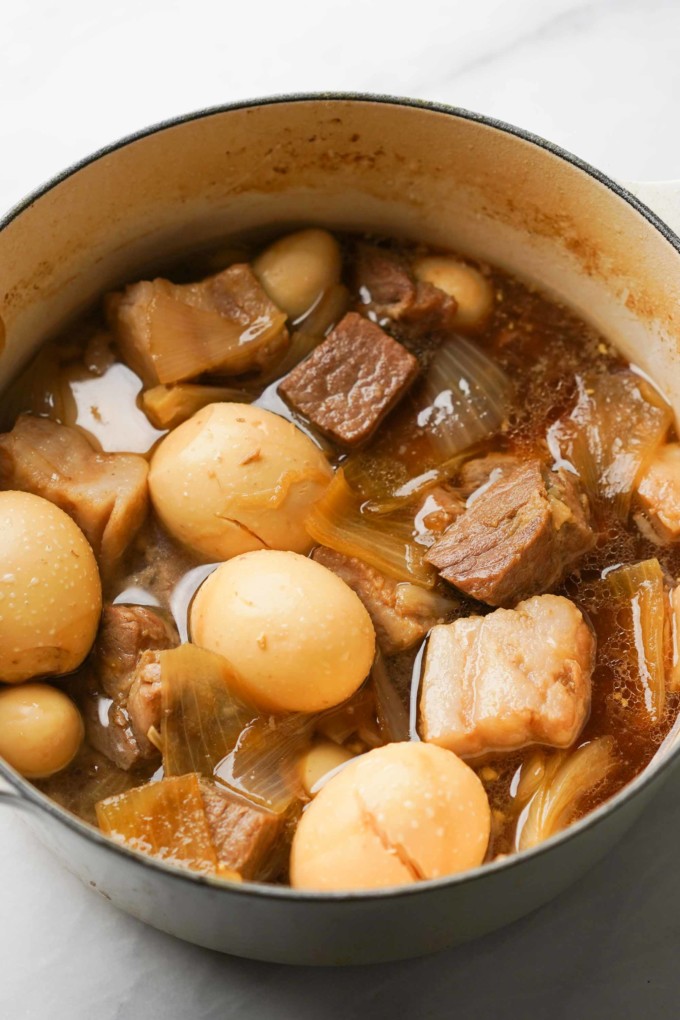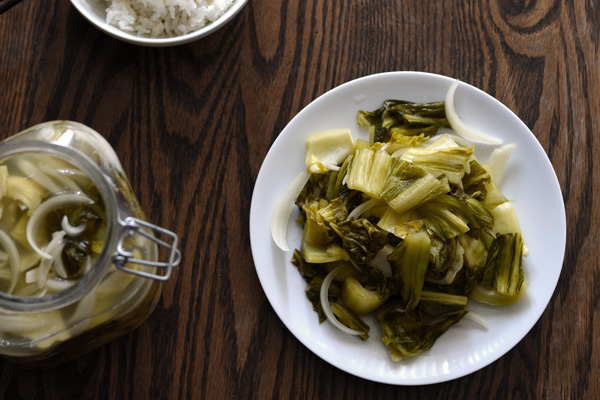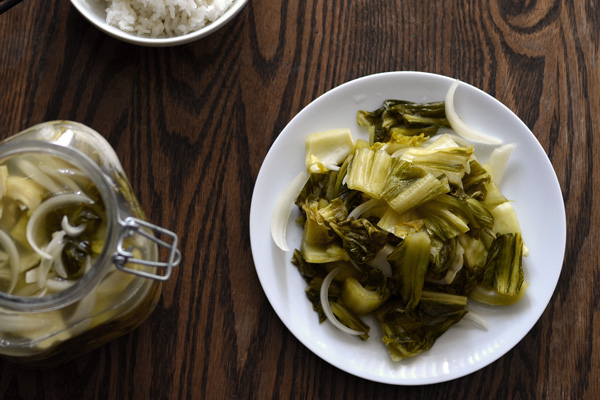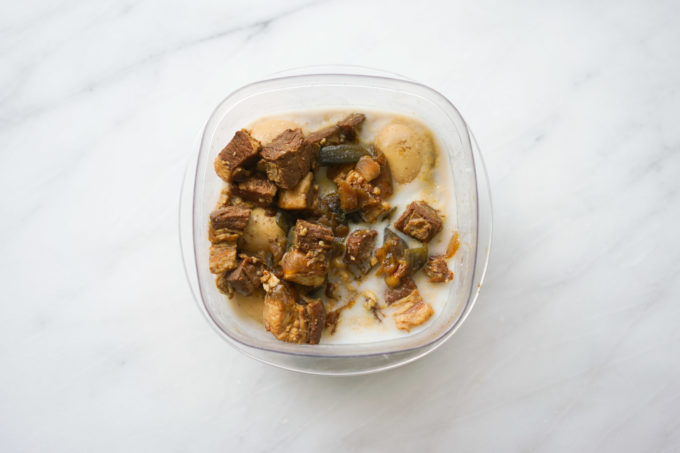This Vietnamese thịt kho recipe is a low and slow braise with suuuper tender and flavorful pork, with hard-boiled eggs that have absorbed all the seasoning too. It’s traditionally served around the lunar new year because of how well it keeps after cooking.
It’s savory, salty, and slightly sweet seasoned mainly with fish sauce and soy sauce paired with hard-boiled eggs. Served atop a large mound of steamed white rice, and a side of pickled mustard greens, these are the flavors and memories of my childhood.
Bạn đang xem: thit kho
The pan-asian pork & egg dish
This dish is seen in very slightly modded variations across other ethnic cuisines, not just Vietnamese. I’ve seen variations in Japanese food, Chinese food, and Taiwanese food. In fact, it’s extremely similar to the recipes I have for Filipino pork adobo and chicken adobo.

I don’t know the actual connection-why all these Asian cuisines have this. Perhaps is the readily available and common ingredients for a simple recipe. It keeps well, and is delicious too.
Cuts of meat to use
Tham khảo thêm: Hot Hot Bật mí 2 cách làm gỏi đu đủ siêu ngon, siêu đơn giản
If you can get pork belly with the bones, you’ll have even better results than just belly, but you can also substitute for whatever cut you prefer especially if you like it leaner. My ideal ratio of pork for this dish is actually 3/4 pork belly and 1/4 of a leaner cut like shoulder.
Pork belly and fat is tasty, but sometimes when the fat to meat ratio isnt right in it, im left with just hunks of fat and nothing to balance it out with. If you pay close attention when selecting the cuts with a ratio you like, it could work out.
Near me in Southern California’s Little Saigon, you can get a higher quality of pork belly at Quang Minh Mini Market. It costs more, but there seems to be a consensus that its worth the cost-something I need to check out! However, I’m having excellent thit kho results from using nearby Vietnamese and Filipino supermarkets in the meantime.
The seasoning & sauce
Here are the brands I use for the seasoning: Rico coconut soda, Kikkoman soy sauce, and Three Crabs Brand fish sauce. The thick soy sauce brand is Koon Chun, to be used in a pinch for color, but you really should be making your own simple caramel coloring (nuoc mau).
Cooking notes
I have tried adding slices of yellow onion too and it adds a nice layer of flavor to this dish. You can remove the onion at the end of the braise if you prefer since it will have given up all its flavor to the broth.
Tham khảo thêm: Nên xem Cá Ngừ Kho Nước Dừa
Adjust the seasoning again after the liquid has reduced to a consistency you like: tinker with the soy sauce, fish sauce, and salt again to taste and write it down so you know what to do next time. This dish scales very well too if you want to make larger quantities for the family. I love the eggs with this, personally, at almost a 1:1 ratio so it’s hard to have too many.
Egg upgrade. If you’re feeling extra fancy, instead of boiling these for hard yolks, you can follow the steps on my ramen egg recipe for gooey, jammy yolks instead, and marinate in the sauce in this recipe before serving the eggs.
Serving & storage

As a kid I enjoyed separating parts of this dish, mashing the yolk with the rice and spooning sauce over it. My cousins were always requesting grandma to make this dish, and even as they grew older. They’d request this dish with “extra sauce” for y’all salt fiends. It is an easy and effective way to stretch the dish with more rice too.
This dish is commonly eaten with a side of dua chua (pickled mustard greens) which provides a fresh and crunchy balance. Any kind of salty meat like this pairs well with a pungent, vinegary pickle.

Once you refrigerate this dish, all the fat will solidify at the top. Since we typically use pork belly for this, I will scrape some of this off. The dish and meat overall are still super tendy and fatty without it! To learn more easy Asian recipes, click here.
